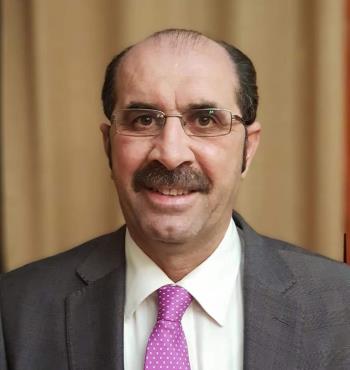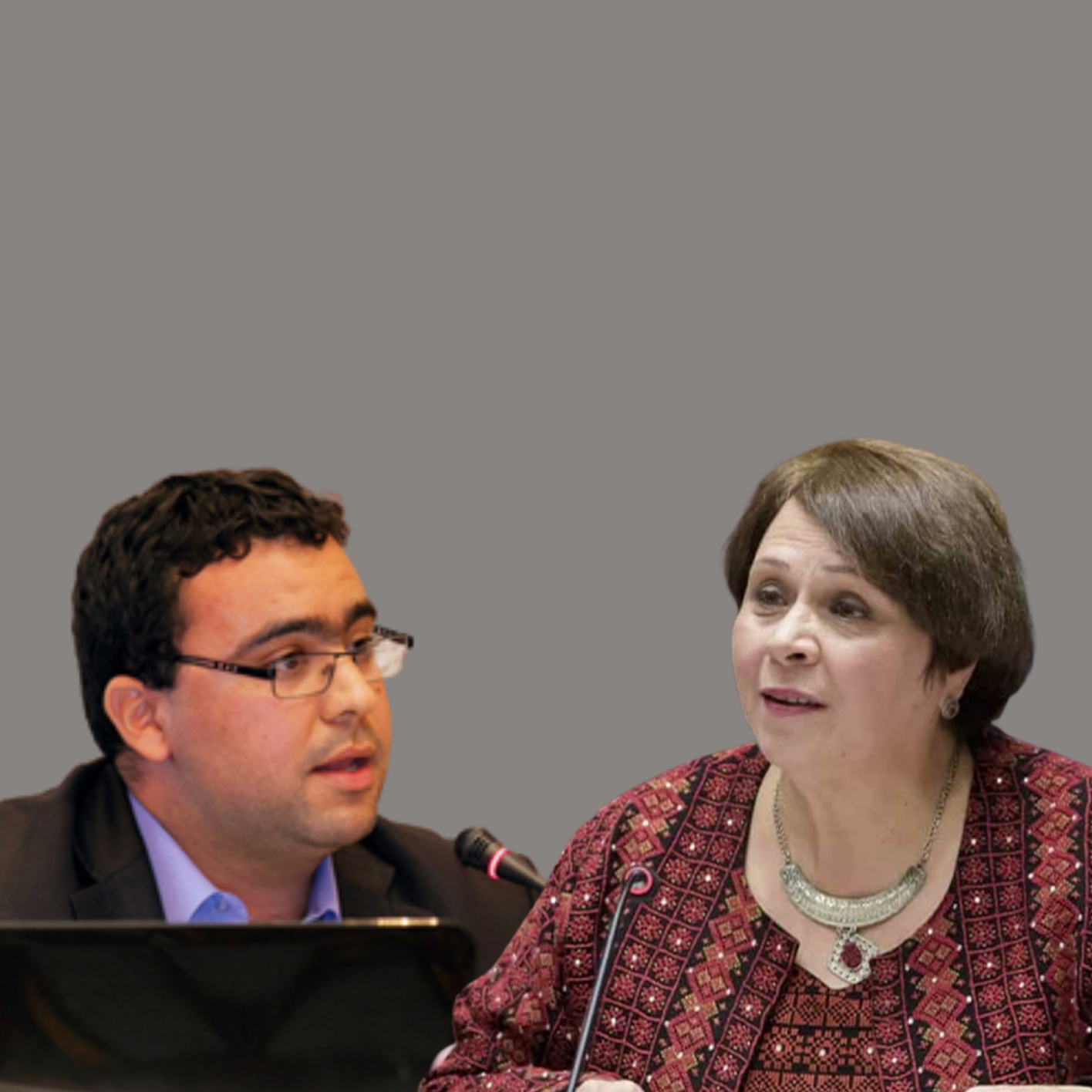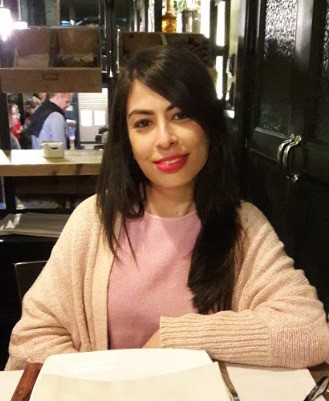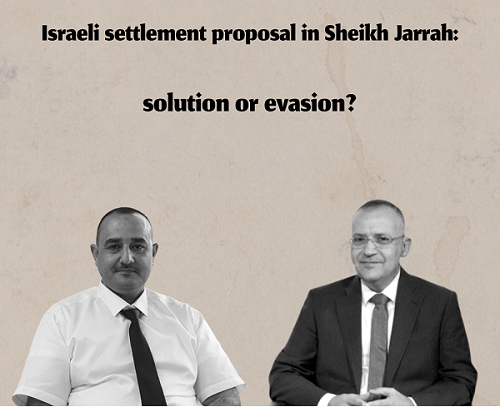
Introduction
Director of the Human Rights And Democracy Media Center “Shams”, Dr. Omar Rahhal, warned against the phenomenon of violence and the rise in crime rates, including killings, and their repercussions on Palestinian society and its social fabric. He said the recent killings/murders in our country are the result of social breakdown and of a setback in morality amid the absence of any role played by the PLC. Meanwhile, civil society organizations continue their efforts to confront this phenomenon and lessen its impact in order to avoid falling into renewed chaos, the outcomes of which are hard to discern.
Dr. Rahhal spoke to “Hosted by MIFTAH” and discussed these issues. Following is the full text of the interview:
**What are the explanations for the rising number of killing in our communities, including inside the Green Line?
I think there are several reasons for the proliferation of this phenomenon, perhaps most importantly the absence of a deterrent law. And if there is such a law, there is no punishment and if there is a punishment, it is commuted and if it is commuted, it gets swept under the rug. Hence, if we want to consider the issue of rule of law, we must admit there is no rule of law. The judiciary system is lax and procedures in this regard are lagging. What’s more, there are no prisoners or rehabilitation centers in each West Bank district. Meanwhile, the penal code enacted in the West Bank for example, is the Jordanian Penal Code No.16 of 1960, which does not include the so-called “atwa” (tribal dispute resolution) even though the security establishment, including the police and the government, often resort to tribal representatives to resolve a problem. Hence, the solution is often according to tribal law at the expense of formal law .
At the social level, there is moral breakdown and a moral crisis. The killing, violence and problems in our country today are the outcomes of this breakdown and the result of the disruption in the Palestinian value system.
As of the beginning of the year, we have 26 recorded murders. In the past, we never had such high levels of crime in the West Bank and Gaza Strip or even inside the Green Line. This is for two reasons: first, between 1967-1994 there was no regulating law for the Palestinian territories; instead there was the law of the occupation. There were also the occupation’s courts, which Palestinians did not go to. The second reason was that the tribe, family and also national factions were a safety valve, which meant that the moral and value system was what governed, not the law.
**Do you have documented data on these killings and the motives behind it, particularly in regards to women? What about geographic distribution?
The numbers in this regard are terrifying. In 2015 there were 56 murders; a total of 30,099 cases and complaints were registered with the police. I believe there were many times that cases never even reached the police and were solved socially. The law, an independent judiciary, litigation measures, the level of integrity and transparency and the number of judges all means there should be no social breakdown or chaos. However, in the absence of these pillars, foundations, regulations and guarantees, problems are naturally on the rise. There is also the economic factor in our country, characterized by poverty, unemployment and a sense of futility, all of which generate violence. When we talk about the Gaza Strip for example, there are around 2.1 million people in a space less than 365 kilometers. They live on less than 40% of the total area of the Strip, meaning there are around 5,700 people living in one square kilometer. There is also the highest poverty rate in Gaza and the highest population density. But even in the West Bank, the poverty and unemployment rates are high.
In the past, we never encountered problems such as marijuana or drugs. The disaster today is that marijuana is not only taken but also planted in our country. This is an unprecedented and scary development. Some may say we do not have organized crime, but the truth is, these are crimes. That is why these developments are dangerous warnings that could have serious repercussions on Palestinian society and on our social coherence, which in turn threatens civic peace in our country and leads to even more problems. If we as civil society organizations, the PA, political factions and the media are not vigilant, we will definitely fall back into a new cycle of chaos with unknown consequences.
**How did the internal division impact the rise in crime rates? What are the ramifications if this continues?
The division has political, economic, social, cultural and legal ramifications. At the social level, the proliferation of weapons, the taking of the law into one’s own hands, the fact that neither side acknowledges the laws and courts of the other, and the siege on the Gaza Strip have all led to a sense of futility, poverty and unemployment. As for the West Bank, there are other issues related to tolerance, accepting the other and dialogue. All of these things have disappeared from the Palestinian street and been replaced by exclusion and killing and to concepts that were not familiar to us before. Even in the media, Palestinians, including politicians, are using phrases and concepts that were never used before and which are foreign to us, such as: “takfeer” and “takhween” (religious blasphemy and treachery). Some words even borderline on profanity.
I think the division was a turning point in Palestinian history, at all objective and social levels. Take for example the rulings by courts in the Gaza Strip. They sentence people who they allege are fugitives from justice or are working with ‘foreign agents”, by which they mean Ramallah. Then look at the West Bank; sometimes certain people are given a security ban that prevents them from practicing certain professions. This is a breach of the constitution and Basic Law, which reaffirms that every citizen has the right to hold a public post. This has all led to more disdain, problems and grudges and to negative perceptions of this or that party. Today we are not tolerant; we hate each other. And this is reflected on our families and our social relationships. It has also led to the spread of more violence and no hesitation in using it. We are not talking about the narrow definition of violence but all forms of it. If you follow the comments on social media websites, you will notice the level and intensity of the verbal violence used, including profane and hurtful words that do not reflect our people’s values.
**In the absence of an authority with legal deterrence and the domination of the tribal system in intervening to resolve conflicts, can we say that tribal justice is the determining factor in handling these cases and stymieing crimes?
Any state or society needs the law. But when there are no progressive or humanitarian laws in place, or a penal code that takes into consideration the accelerating developments and which is considered a societal necessity for social development; and when where is no rule of law, all this will lead to a shortcoming in performance. And when you only control around 15% of the overall area of the West Bank while 62% of this area falls in Area C, the Palestinian security establishment cannot reach or cover all of these areas. What’s more, there are less than 8,000 members of the police force in 11 districts, which means we do not even have sufficient equipment or manpower, nor do we have enough rehabilitation or training for these forces or the necessary labs needed for police work. Furthermore, there is no even geographic distribution in the West Bank, which means that tens of thousands of cases end up on the shelves of these courts at a time when we have no more than 300 judges.
There has been a rise in the number of recorded cases. According to the police’s annual report, for 2016 and 2017 there was a rise of 2,800 cases, while the overall number of cases in 2017 was 30,099.
Our question to policy makers is, what are the interventions being carried out by the government, which are translated into outputs, in regards to these high crime rates and the lack of security? The statistics, either by the police or from civil society institutions pertaining to civic peace are not taken into account by decision makers who consider them to be fringe problems in Palestinian society. They must be taken into account in order to formulate preventative plans to deal with these crimes when the subject is about economic crime. Meanwhile, the security establishment intervenes more in political issues but when we speak about crimes of violence and murder we have no plan to confront them. Neither does the government or security establishment (the police) have an ongoing strategy to deal with them.
**How would you assess the relationship between the rule of law and tribal law?
There is no positive relationship between the two, even though in some cases the formal judiciary takes into consideration the conciliation pacts made by tribal personalities.
We are with tribal conciliation and not tribal law. In many countries this issues takes other forms. For example, there are arbitrators who take on a legal capacity and use legal coercion. Many of the cases that are resolved through arbitration end up in court. In our country, there is a reciprocal relationship and there are no efforts to close the gap; the tribal judiciary complements the formal judiciary. This is because the former judiciary does not have the ability in terms of the requirements and logistics to look into tens of thousands of cases. Neither are there efforts to look into a serious and reciprocal relationship or to look for ways of cooperation and coordination between the formal and tribal judiciaries. Both sides look at the other with suspicion and disrespect. I listen to judges from the formal judiciary about their stance towards tribal law and also listen to conciliation-mediators and have found that both have preconceptions and a hostile image of each other.
We as Palestinians must search for prospects of cooperation and close the gap between us because there are many social issues that may never reach the judicial system given their sensitivity, which means one can turn to social conciliation instead. This could actually lighten the load for the formal judiciary in terms of actually finishing cases which were slowed down by the system. The formal judiciary must take into account the outcomes of a poll conducted by the PCBS two months ago which showed that only 36% of the Palestinians polled trusted the judicial system, which is a dangerous indicator that must be taken very seriously.
The average Palestinian citizen does not have much faith in the judicial system because of how slow the litigation process is, which is a reflection on its reputation. This naturally leads to more trust in the tribal judiciary, which pulls the carpet from underneath the Palestinian justice system.
**How are so-called “honor killings’ handled by the law? Do you think the law is fair and equal in this regard?
The laws enacted in our country, by which I mean the Jordanian Penal Code No. 16 of 1960 deals with women as inferior whereby the perpetrator can marry his victim. What’s more, the perpetrator of crimes that fall under the category of “honor” can get a mitigated punishment. While it’s true that the President cancelled this article, in reality things are still the same. We have dozens of examples of this, the most recent one last night when a few brothers killed their sister and her husband in Ya’abad in the Jenin district even after the two families had reconciled. The reconciliation even happened under the supervision of the Palestinian intelligence services.
Palestinian laws are discriminatory in terms of gender-sensitivity. In addition, the laws enacted in Palestine are lacking in terms of respect for women; instead they treat them like second-class citizens. There is no equality. Socially, it is not such a big deal to kill a woman. Unfortunately, in some districts, the mourning fora women who is killed only lasts for one or two days instead of the traditional three days accorded to men.
We need amendments or a Palestinian penal code. The Ministry of Justice in addition to women’s institutions, civil society organizations and rights and academic institutions were able to draw up a draft law which is progressive and humane and that respects women’s dignity. Unfortunately, the President does not regard this as a priority and does not consider it a necessity. Hence, we have laws that not only do not respect women but almost encourage their punishment; ultimately, a father, brother or husband only has to sit down and drink of cup of coffee to solve the problem, which is something that has happened dozens of times.
**Do you think the recent killings in Palestine are a result of security chaos?
I cannot say there is security chaos in Palestinian streets, but that there are pockets where chaos and weapons can be found. Still, the spread of these issues, regardless of how dangerous they are, cannot be described as security chaos. There is social breakdown in the fact that there are advanced and modern weapons in the hands of a group of people who are said to be morally and ethically questionable. These groups do not hesitate to use their weapons on every occasion or at least to threaten to use them. Hence, the security establishment, now more than ever needs to control these weapons and bring the culprits to trial, albeit a fair trial. Any laxity in this could lead to chaos and such groups could become more like militias.
**Within the social, political and economic context, what are the mechanisms for rescuing the law? Have the efforts of civil society regarding citizenship and promoting the rule of law all gone to waste?
Sometimes civil society carries a heavy burden. Take for example MIFTAH, which works in earnest on these issues, especially on women’s issues. Others also hold workshops, symposiums and conferences, television and radio shows and meet with decision makers, conduct studies and research and shed light on the social issues including violence on the ground.
I think civil society organizations have taken on a major role on behalf of the PLC; there have been no elections and a deadlocked horizon. But to be honest, civil society institutions are not focused in their direction because of the unique Palestinian case. It is not because they have no strategic plans, but because of the multitude of problems and priorities on their plate they feel they are “carrying 10 watermelons in one hand”. Still, it is crucial for decision-makers to be receptive to what civil society institutions produce because these results, recommendations and studies alleviate the load off the government. The information that is delivered to the government comes on a silver platter in order for it to use in formulating policies, programs , plans and procedures and therefore protect the social fabric from disintegrating. This is with the understanding that civil society has no police force and does not have the disciplinary ability that would allow them to carry out a bigger role.
Once again, the government and centers of influence – that is, the security establishment – must take into consideration the recommendations of civil society regarding the subject of crimes and violence in Palestinian society. Meanwhile, we as civil society institutions must make more efforts, coordination, networking and joint action in this direction. We must also be clearer in the relationship among us because a lack of coordination and networking will lead to more chaos and the waste of time and energy. The more cohesive and united we are, the more we can work as one team and therefore reap better results and have more impact on the ground.
**What is your comment on the recent resignations at the Supreme Court of Justice? What about the decision to establish a constitutional court? Would this have ramifications on the security situation in Palestine?
We respect the judges and the members of the Palestinian constitutional court. As Palestinians, we hope the Palestinian political system is complete. However, forming this court was not a sound decision in terms of timing. We are in a situation of internal Palestinian division, not to mention that it was established in accordance with one political approach and that it excluded women completely. It also excluded well known Palestinian competencies with experience and knowledge in this field. Hence, there are some reservations on this matter. Also, neither society nor the other political parties were consulted in the formation of the court when the decision was made. So, like I said, the timing was not right. Furthermore, the explanations given by the constitutional court on some issues that were posed by the PA raised even more controversy in the Palestinian street, to the point where women demanded the dismantlement of the court and the formation of a new one. Constitutional courts in any country have importance and necessity because it is an expression of an honest, solid, transparent and objective judiciary. In our country, it has led to more controversy and reactions.
As for the mass resignations of the High Court, I think this should not have happened. The President formed a committee to reform the judiciary, which came out with a set of results and recommendations for this purpose. The judges themselves say the Palestinian judicial system needs reforming and restructuring. Even ordinary citizens are aware of this. Hence, there is no shame in reconsidering the judicial system; we must learn from our experiences and not remain so conservative because the street is saying that those who tendered their resignations did so in protest of their endangered privileges.
We trust the Palestinian judicial system and hope there will be more reforms and new blood pumped into it. We hope for more accountability because judges are trusted and those who break the law must be punished while those who offer better services should be rewarded. So, there is no assault on or interference in the Palestinian judiciary; it is more that institutions, society and academics want an honest, neutral Palestinian judicial system that supports human rights and respects human dignity.
**How do you see the role of the local and official media and also social media in promoting civic peace and confronting the phenomenon of violence and killing?
Palestinian media is divided into four sections: There is the official media, factional media, commercial media and civil media. Liberation politics and ideological backgrounds play a central role in approaches of each of these medias. Sometimes, Palestinian media is a space for verbal arguments and bickering while other media outlets stand out in that they monitor and prepare investigative reports and host different people not of the same political leanings. In this case, the media does what is required. There are five Palestinian newspapers in the West Bank and Gaza Strip, over 12 Palestinian satellite channels including official, factional, commercial and civilian channels and dozens of websites and local radio stations. The official media is very important to have but we still do not see the media fully doing what is required of them. It does not represent what is often called the fourth authority. In many countries, the media has brought down presidents and governments; it has played a positive role in respecting human rights and dignity and promoting democracy in societies. However, in our country, the media has played a role in rattling civic peace and social coherence. There are many terms that have emerged in the official, factional and other media outlets such as treachery “takhween” “takfeer”(blasphemy) and ‘racism”. Such terms have become commonplace in the Palestinian street. Additionally, Palestinian capital and monopoly companies played a negative role. This shows that monopolies on the one hand and capital on the other have taken control. Hence, we do not have a media that takes the responsibility of social issues and defends them. Add to this the self-censorship among some Palestinian journalists. In the end, they are either far right or far left. While it’s true there is no neutral media because there is no media anywhere that does not have an agenda, for us, we do not have a media that can influence or change and be a space and platform for people to have more and more of an impact on things. What we have now is no more than spaces on the basis of personal loyalties.








